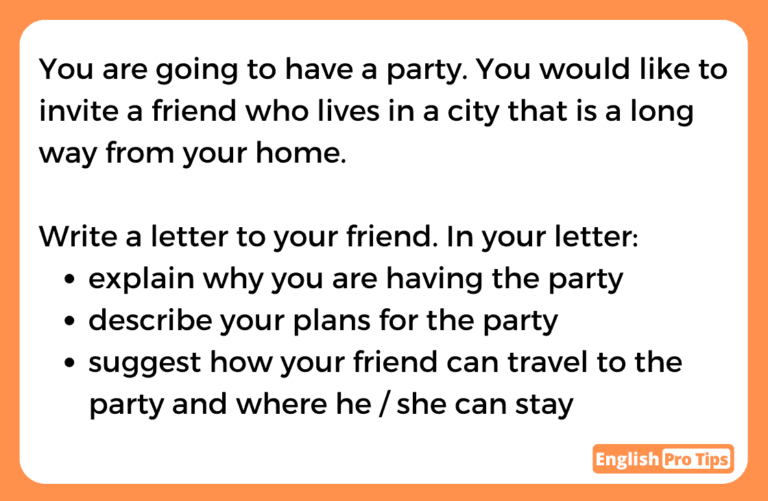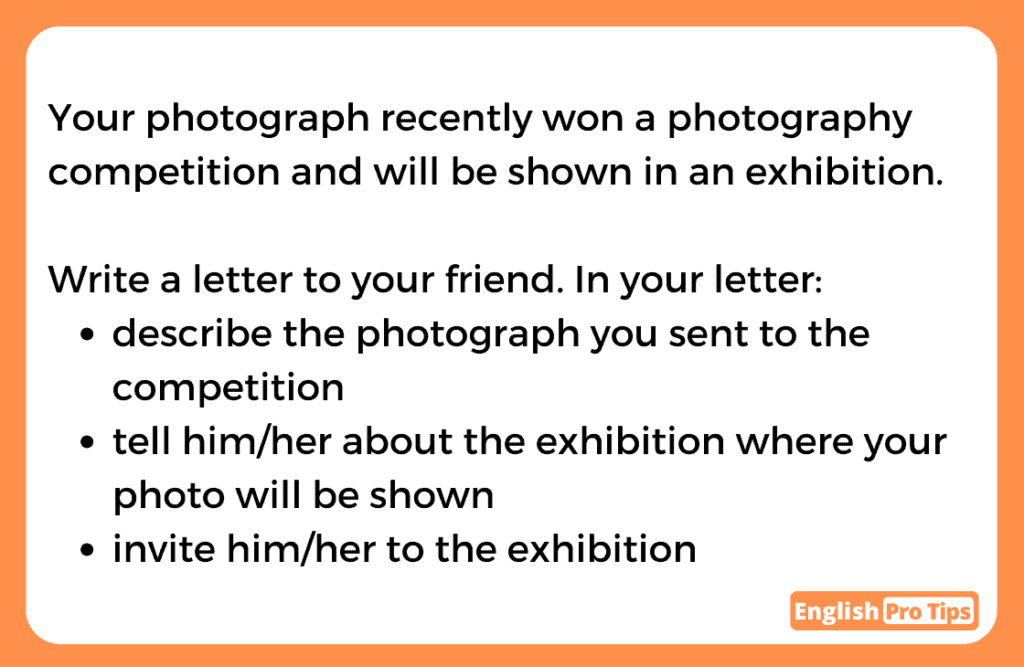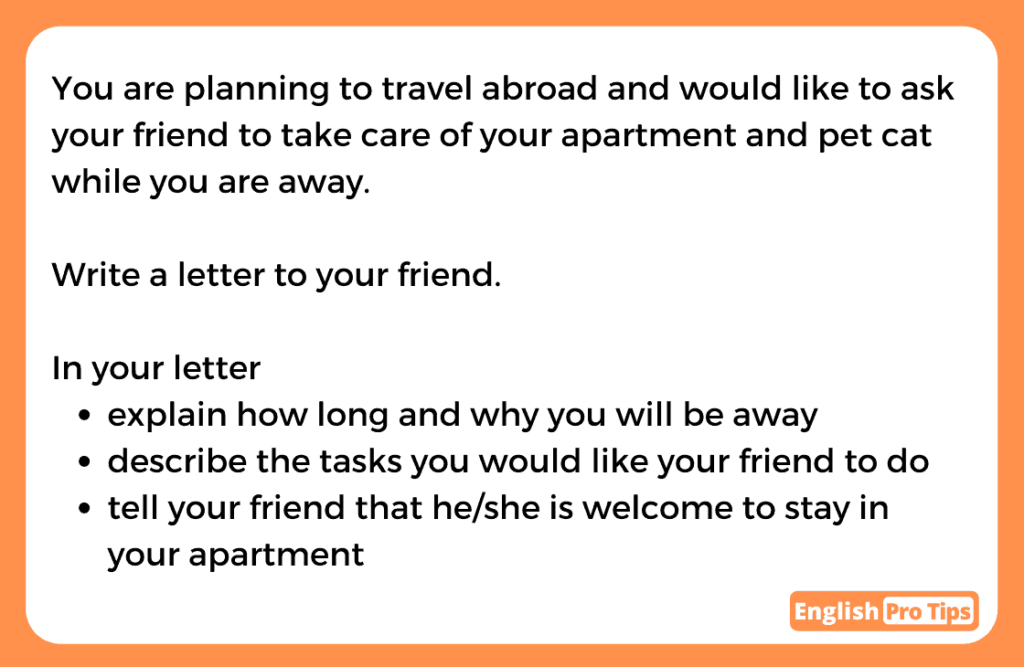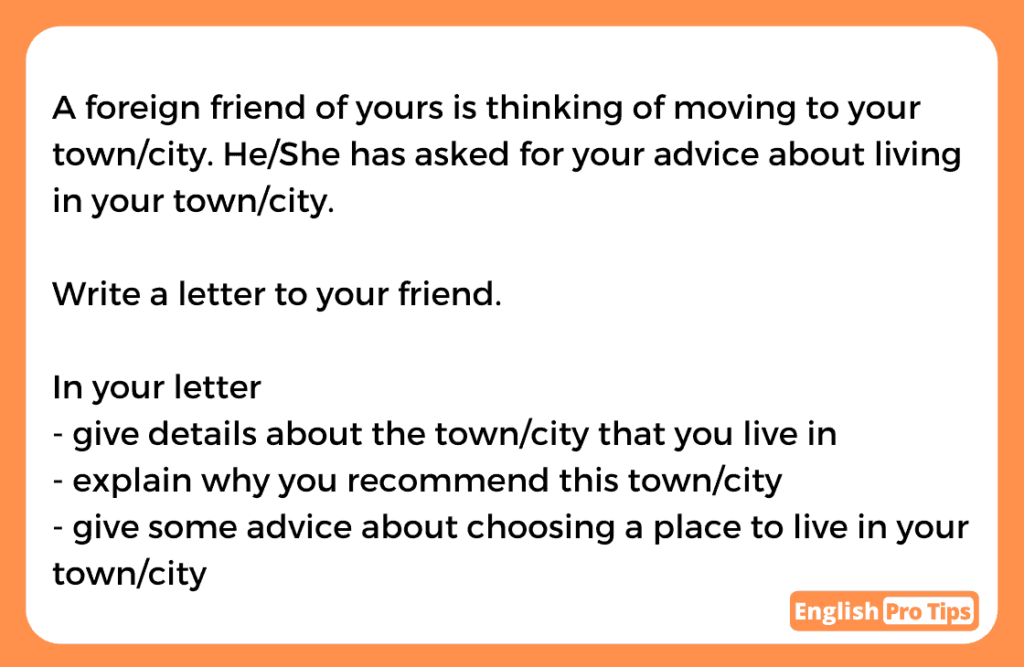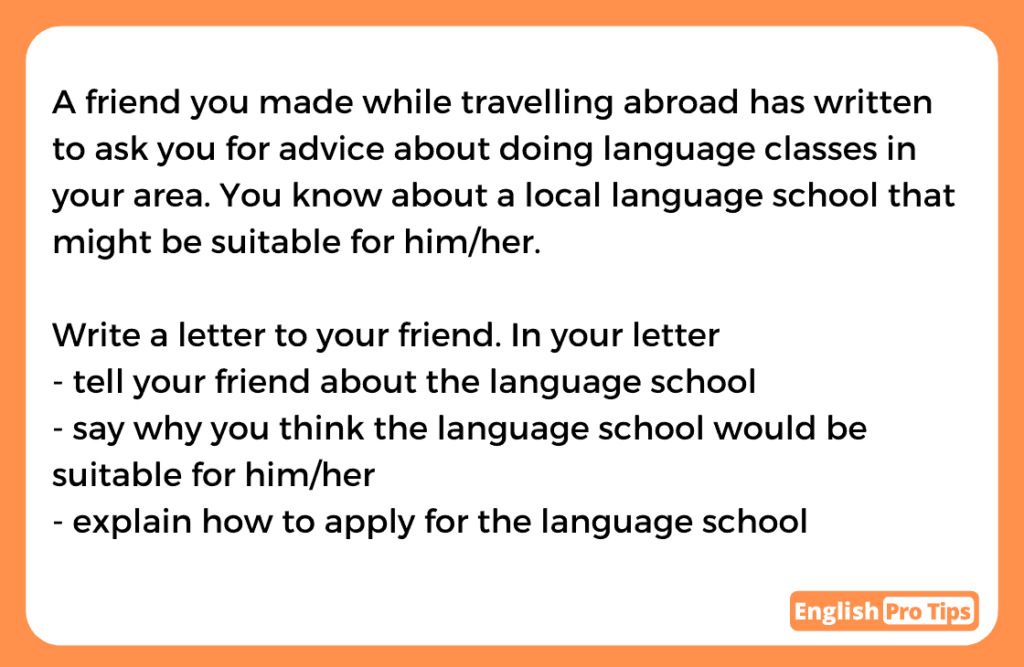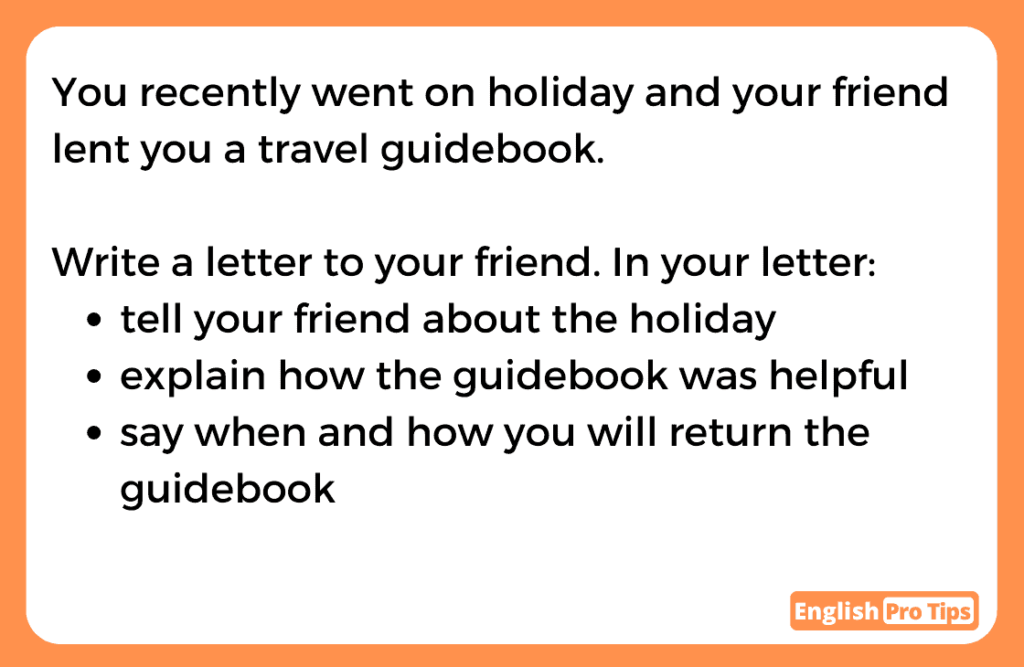Examiner Comments
Overall, it’s a well-structured and friendly letter that effectively conveys the writer’s enthusiasm for the recipient’s presence at the birthday celebration. The warm and casual tone makes it sound genuine and friendly and is used well consistently throughout the letter.
The writer genuinely expresses a desire for her friend to attend the party which makes the invitation feel sincere.
The letter elaborates on bullet points well, providing specific details about the party helping her friend to know what to expect before deciding if she will come.
The use of exclamation marks appropriately conveys enthusiasm and excitement, contributing to a natural and overall positive tone which is used consistently throughout.
Appropriate cohesive devices are used effectively in this letter.
The letter is arranged into distinct paragraphs and ideas are easy to follow.
Throughout the letter, the writer uses a wide range of more informal linking words naturally.
This letter contains a wide range of appropriate vocabulary which is used accurately and contributes to the overall friendly tone. There are no spelling errors.
Some examples of appropriate vocabulary are:
Long time no speak!!
If you could make it: I know you live miles away, but it’d be so awesome if you could make it.
Head back to: I’ll have lunch with a small group of close friends at a local Korean restaurant around midday and we’ll all head back to the flat after that.
Stay over at my flat: The whole journey takes about four or five hours. You’d be so welcome to come the day before and stay over at my flat for as long as you like!
This letter uses advanced grammar structures which contribute to the overall fluency, expressiveness, and variety of the language used overall.
- Implied conditional sentence: It would be so good to see you for my birthday.
- Complex sentences: As you know, I don’t usually make a big deal out of my birthday, but my flatmates are insisting that since this is a big one, we have to celebrate.
- Reduced relative clause: The journey from Sitges to my town is not too convenient as you may remember from when I visited you last summer.
Useful Vocabulary
The phrase “long time no speak” is a casual way of saying that it has been a while since the last conversation or communication between two people. It is often used humorously or lightheartedly to acknowledge the passage of time since the last contact.
In this context the phrase “big deal” is used to describe something significant or important.
As you know, I don’t usually make a big deal out of my birthday but my flatmates are insisting that since this is a big one, we have to celebrate.
The phrase “talk someone into” means to persuade or convince someone to do something, especially when they are initially hesitant or resistant.
I’ve let them talk me into having a party at our place on the 21st.
“Our place” is an informal way of referring to a location that belongs to us or is familiar to us.
I’ve let them talk me into having a party at our place on the 21st.
The phrase “head back to” means to return to a particular place or location.
I’ll have lunch with a small group of close friends at a local Korean restaurant around midday, and we’ll all head back to the flat after that.
“Raucous” means loud and disorderly.
We’ll have some good food and drinks and music, but it won’t be too raucous because I need to consider my neighbours.
“Stay over” means to spend the night at a place other than one’s own home, often as a guest.
You’d be so welcome to come the day before and stay over at my flat for as long as you like!


